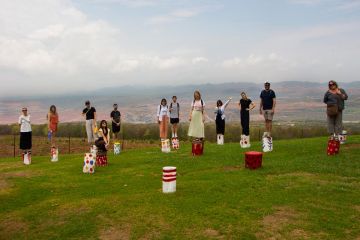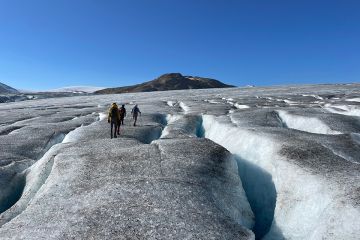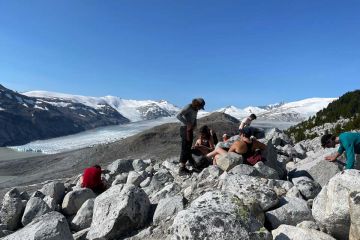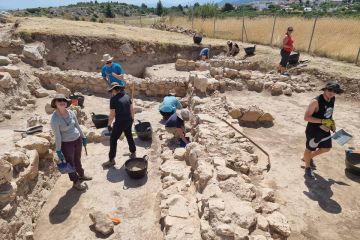Drawing local lessons from European lives
- Anne MacLaurin
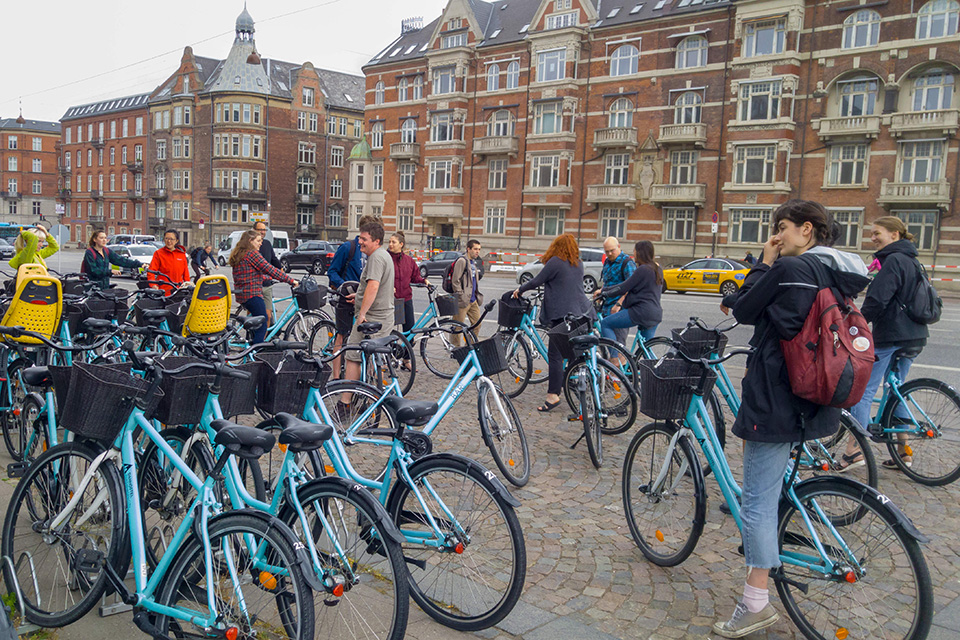
City of Victoria planner joins sustainability field school to co-teach and share in immersive discovery of sustainable practices abroad
As an innovator and advocate of experiential learning, Cam Owens elevated awareness about the value of field schools when he joined UVic’s Department of Geography in 2012, from Calgary. Owens brought an infectious optimism for field school programs, truly embracing the adage, “out of the classroom and into the real world” of learning.
Seven years later, the department has added five field-based schools to its undergraduate program and the popular Sustainability Field School has two programs: the Cascadia Field School and the Urban-Europe Field School.
“The Cascadia Field School is probably my favourite, as it is more directly relevant, exploring sustainability in the context of our own greater bioregion,” says Owens, “but the Europe Field School is a little more exotic.”
The Cascadia Field School travels down the west coast through Seattle, Portland and on to San Francisco meeting with urban planners, activists and scholars—grappling with the social and ecological challenges facing cities in this region.
This year, the Sustainability Field School took geography students to Europe—traveling by train, bus, ferry and bike to study innovations in urban sustainability in Manchester, Edinburgh, Newcastle, Amsterdam, Hamburg, Copenhagen and Malmö.
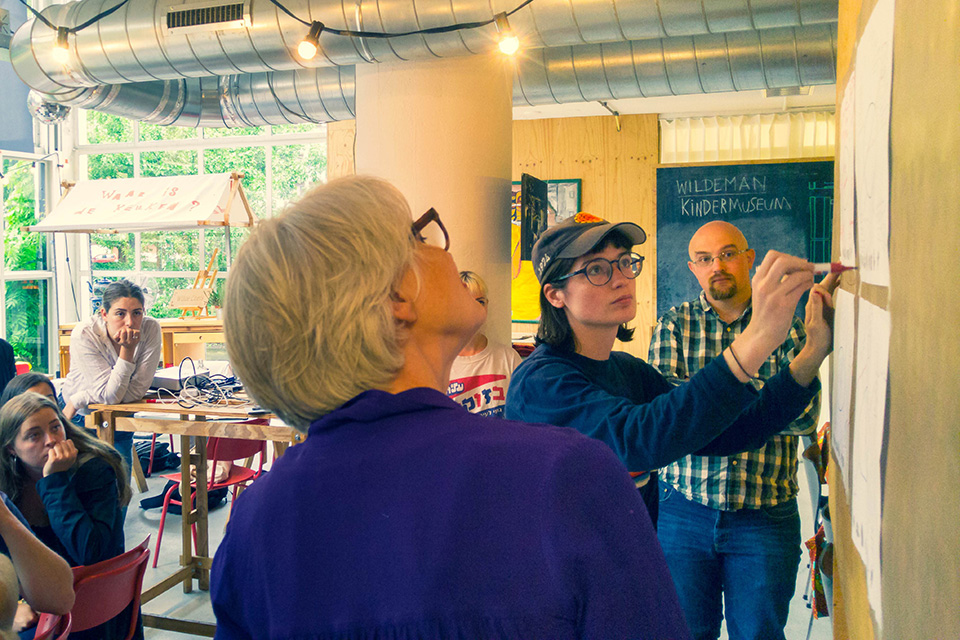
Owens also added a new element this year. In partnership with the City of Victoria, he invited Planning Director Jonathan Tinney along to experience part of the course.
“Tinney joined our group as a co-instructor and co-learner,” says Owens. “He brought a unique point of view to our discussions as a city planner—the students learned a lot about the opportunities and challenges of implementing ideas back home in Victoria.”
Owens intends to further the partnership with the City of Victoria so each year a planner or urban designer can join the program.
Owens truly believes by taking students out of the classroom and into the real world you give them an immersive learning experience that sticks with them much longer than reading a textbook.
“Students reflect on the power of immersion,” says Owens, “of direct experience, place-based and emotional learning, of learning from multiple perspectives and of being part of a supportive learning community.”
The travel-study program focuses on innovation in urban sustainability and, more generally, cultural geography with the students practicing critical thinking skills through continuous individual and group debate and social interaction.
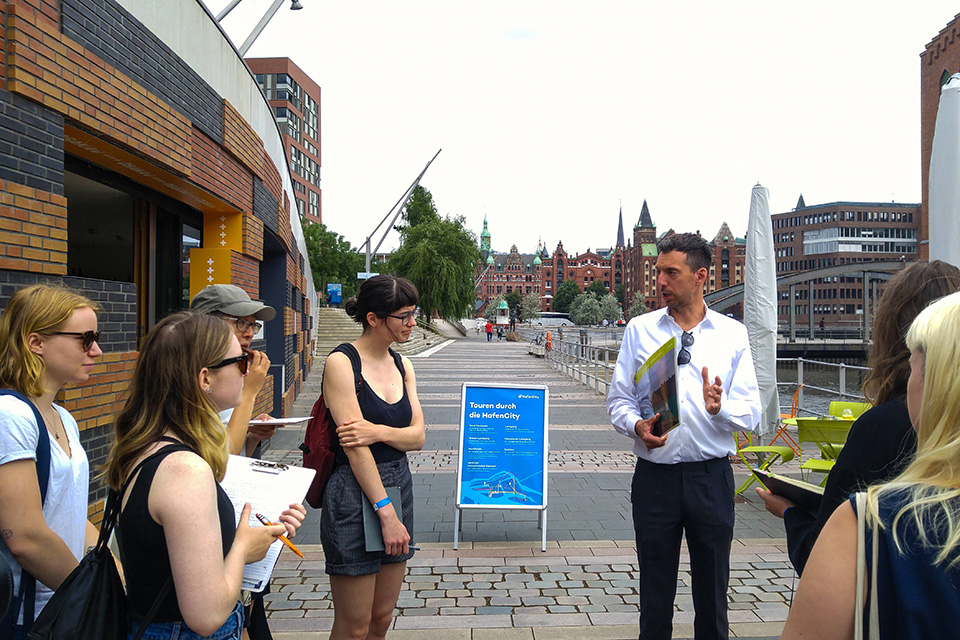
According to Owens, the course balances structured activities with individual exploration and group reflection. Each student keeps a detailed field journal and contributes to a multi-media blog.
For fourth year geography/gender studies student, Justine Bochenek, it was a once-in-a-lifetime opportunity to join the Urban-Europe field school.
"I feel incredibly lucky to have gone through this experience," says Bochenek. "We met with urban designers in Copenhagen and Amsterdam who have incorporated the philosophy of designing in the community for the community."
Upon return, each of the 17 students developed a legacy project, investing their new knowledge and enthusiasm in something that gives back to their local community. Bochenek was inspired by a project in Amsterdam and is hoping to create something similar in Victoria. She wants to create a space where community can come together for discussions on urban issues, asking "what does an anti-racist city look like?" or "what does a city without displacement look like?"
Fifth-year geography student Alexander Ma’s legacy project documented the trip using photos and videos with a focus on student interaction with the local community. His images are now being used in a variety of promotional contexts by the department.
"I enjoyed learning about the largely unseen 'spaces between buildings,'" says Ma. "I gained a different perspective about the cities from our local guides—something I would have missed if I was there as a tourist."
A course highlight for fifth-year geography and environmental studies student Zoe Kamis was the opportunity to learn from inspiring people working at the local level on important sustainability projects.
We visited roof top gardens, foraged for our own mussels in the Baltic Sea and cycled down the bike-centric streets of Amsterdam and Copenhagen. If you are interested in urban sustainability this course is an enlightening experience that extends beyond the classroom.
—Zoe Kamis, geography and environmental studies student
Registration for the next year's Sustainability Field School is already open, with travel planned through Spain, France, Germany and the Netherlands.
To learn more watch and read the student VLOG.
Photos
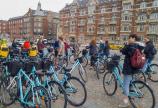
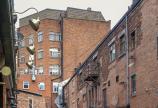
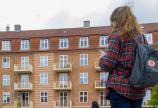
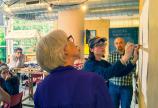
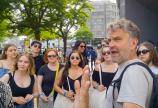
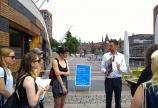
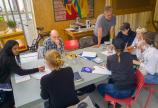
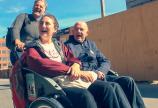
In this story
Keywords: field schools, geography, sustainability, student life, international
People: Cam Owens
Publication: The Ring

